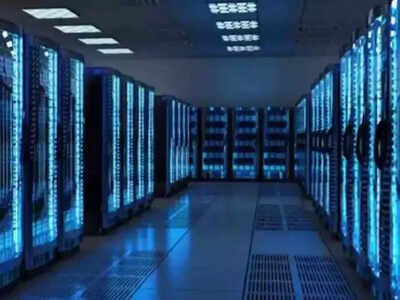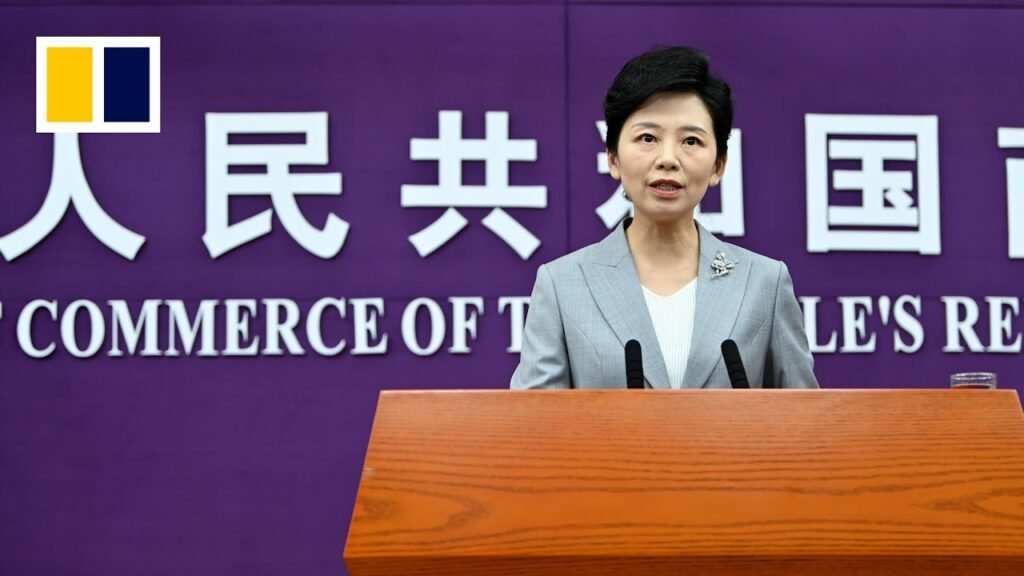China and the US have started charging additional port fees on shipping vessels as trade tensions between the world’s two largest economies soared back, following China’s rare earth export controls in response to new trade restrictions imposed by the Trump administration.
The port fees from both sides went into force on Tuesday and have caused fear among analysts, who say maritime trade has become a key battlefront between the two nations.
Recommended Stories
list of 4 itemsend of list
The new trade tensions erupted despite a pause in the tariff war, and come as Trump is expected to meet his Chinese counterpart Xi Jinping on the sidelines of the Asia-Pacific Economic Cooperation (APEC) summit in South Korea at the end of this month.
China has accused the US of “double standards” after it threatened to impose a 100 percent tariff on Chinese goods following last week’s rare earth curbs by Beijing.
Here’s what to know about the new port tariffs as the two countries are engaged in ongoing trade negotiations:

What are the port fees imposed by the two sides?
A White House executive order named “Restoring America’s Maritime Dominance” directed the US Trade Representative (USTR) to impose charges on owners and operators of Chinese-built, owned, or operated vessels entering the US by October 14 as follows:
- Vessel operators must pay $50 per net ton for Chinese-owned or operated vessels arriving at a US port, to be increased to $140 by April 2028
- Vessel operators of Chinese-built vessels arriving at a US port must pay $18 per net ton or $120 per container, which will be increased to $33 and $250, respectively, by 2028
- Fees are to be charged for a maximum of five times per year for individual vessels
- Long-term users of China-operated vessels carrying US ethane and liquified petroleum gas (LPG) are exempt till December 10
China, on October 10, retaliated and said it would also charge US-owned, operated, built, or flagged vessels additional levies starting from October 14 as follows:
- Vessels owned or operated by American companies or individuals will pay a 400 yuan ($56) per net ton fee for every voyage
- Ships or vessels built in the US or flying an American flag will pay the same amount
- The fees will be charged for a maximum of five trips per year, and will rise to reach 1,120 yuan ($157) per net ton
- Empty vessels entering Chinese shipyards for repair are exempt. Chinese-built ships are also exempt.
China’s Ministry of Transport said in a statement on October 10 that the tariffs were “countermeasures” meant to respond to the US’s “wrongful and discriminatory” practices.
In a separate but related move, China on Tuesday imposed sanctions on five subsidiaries of South Korean shipbuilder Hanwha Ocean, which it said “assisted and supported” US investigations into Chinese trade.
The US was the first to levy additional fees on Chinese-owned ships back in April in a bid to loosen Beijing’s hold on the global maritime industry and bolster US ship manufacturers. That decision followed an investigation under the Joe Biden administration that revealed China dominates global maritime, logistics, and shipbuilding using “unfair policies and practices” such as funnelling state funds into shipbuilding.
China hit back at the US and said it would also charge similar fees on the same day US tariffs were set to go into effect.
In a statement on Tuesday, China’s Ministry of Commerce said: “If the US chooses confrontation, China will see it through to the end; if it chooses dialogue, China’s door remains open.”

Who are the main players in the global maritime trade?
China dominates the global commercial shipbuilding industry, followed by South Korea and Japan, according to data from the Center for Strategic and International Studies (CSIS).
Beijing built 53 percent of commercial ships in 2024, while the US produced only 0.1 percent of such vessels. Chinese state-owned China State Shipbuilding Corporation (CSSC) is the most significant player in the industry, and built more commercial vessels by tonnage in 2024 than all of the US shipbuilders have done since 1945, according to CSIS.
The state-owned CSSC also notably manufactures naval warships, and contributes to China’s status as having the largest naval fleet by ship numbers -at 355 vessels by 2020, according to a US Department of Defense report, compared with the US’s 293 naval vessels at the time.
While analysts point out that the US maintains the strongest navy based on firepower, China’s shipbuilding dominance has raised security concerns in Washington for several years.
Why did the US impose curbs on Chinese-built ships?
The US is attempting to loosen China’s grip on maritime dominance.
Washington first began mulling taking action against China’s shipbuilding capabilities in May 2024, after five US trade unions petitioned the USTR for “relief” against what they called China’s “unreasonable” practices in the maritime and shipbuilding sector, citing extensive state-led support for the Chinese shipbuilding and maritime sectors, which the US argues gives Beijing an unfair edge over competitors.
The USTR thereafter launched investigations into Chinese shipping trade practices. In January 2025, after President Trump was sworn into office, the department determined that Chinese actions “burdened and restricted” US commerce, and that action would be taken. Over several weeks, US trade unions and lobbyists testified at public hearings regarding the action to be taken, before Trump’s Executive Order “14269 – Restoring America’s Maritime Dominance” was published in April.
In March, President Trump, in an address to Congress, promised that his administration would “resurrect” the US shipping industry and added that he would create an “office of shipbuilding”.
“We are also going to resurrect the American shipbuilding industry, including commercial shipbuilding and military shipbuilding,” Trump told lawmakers, prompting applause from House Republicans. “We used to make so many ships. We don’t make them any more very much, but we’re going to make them very fast, very soon. It will have a huge impact to further enhance our national security.”
In a statement following Trump’s speech, Matthew Paxton, president of the Shipbuilders Council of America, praised the president’s move. “By fully utilising the existing domestic shipyard capacity, the shipyard industrial base can meet the growing demands of national defence, restore American competitiveness, and create thousands of skilled jobs in communities across the nation,” he said.
How will the tariffs affect global trade?
Analysts say the move on both sides is disrupting global trade operations already. Chinese container carrier COSCO could bear the most burden from the US fees, expected to cost the industry $3.2bn, while shipping intelligence firm Clarksons Research said in a report that China’s new port fees could significantly affect oil tankers, which account for 15 percent of global capacity, the Reuters news agency reported.
Major shipping links, including Danish-owned Maersk, German Hapag-Lloyd, and French CMA CGM, have reportedly swapped China-linked ships from their US shipping lanes, according to Reuters.
“We are in the hectic stage of the disruption where everyone is quietly trying to improvise workarounds, with varying degrees of success,” Ed Finley-Richardson, an independent dry bulk shipping analyst, told Reuters.
The analyst added that there are reports of US ship owners operating non-Chinese vessels trying to sell their cargoes to other countries while en route to China, so the vessels can divert. Reuters reported that it was not immediately able to confirm the claim.
Meanwhile, South Korean shipbuilder Hanwha Ocean is already facing Chinese sanctions on five of its US-linked subsidiaries. Hanwha is one of the world’s largest ship manufacturers, and owns the commercial Philly Shipyard in the US state of Philadelphia. Hanwha Ocean’s shares dropped nearly 6 percent following the announcement, Reuters noted.
What are the other trade curbs announced, and will this lead to an all-out trade war?
China, which has a monopoly on critical rare-earth metals used to manufacture electronics, tightened export controls on five of them on October 9 under its “announcement number 61 of 2025”, including holmium, erbium, thulium, europium, and ytterbium. That’s in addition to curbs on seven metals announced earlier in April.
President Trump, in retaliation, has threatened to raise tariffs on Chinese goods to 100 percent from November 1.
The US imposed heavy tariffs on Chinese goods earlier in Trump’s presidency, in an attempt to address what Washington views as imbalanced trade relations. Those tariffs were eventually eased after the two countries came to an agreement in September for a 90-day pause that is set to expire on about November 9.
However, tensions are again high following the new rare earth tariffs by China, and the port levies announced by both countries. Analysts have previously warned that a full-scale trade war between the US and China could hit global markets badly and prompt a recession.








